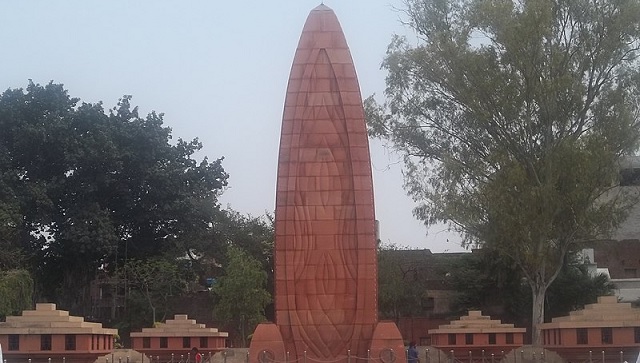The Jallianwala Bagh had witnessed a massacre at the hands of the British 102 years ago, when thousands of men, women and children were killed on the orders of British general Reginald Dyer. Indians had gathered at the Jallianwala Bagh on the occasion of Baisakhi, a Sikh festival, defying the British diktat which prohibited mass gatherings. To teach Indians a “lesson” for their “disobedience”, Brigadier-General Dyer ordered his troops to open fire on the gathering. The troops, before opening fire, blocked all the entry and exit gates of the Jallianwala Bagh in Punjab’s Amritsar. Bullets rained on thousands of people, who were at the venue unaware of British order, for nearly 10 minutes as many jumped into the well to save themselves. The official number of deaths, released by the British, stood at 350, but the Congress party said as many as 1,000 people lost their lives in the indiscriminate firing ordered by General Dyer. Following the incident, General Dyer was removed from his post , his promotion was stalled and he was barred from any further duty in India. The incident was also a turning point in India’s modern for it changed the course of the freedom movement. While many, including Sir Winston Churchill, then secretary of war, condemned General Dyer’s actions, the House of the Lords lauded him and presented him with a sword having “Saviour of the Punjab” inscribed on it. The Jallianwala Bagh site in Amritsar is now a national monument. Over a century since the massacre, Indians remember the sacrifice of men, women, and children, who lost their lives to the British bullets. With ever-growing calls for an apology, former British PM Theresa May had expressed “regret” over the incident, adding it was a “shameful scar” on British-Indian history. However, there was no apology from neither her nor any other British leader. In 2019, on the 100th year of the massacre, Dominic Asquith, British High Commissioner to India, visited the Jallianwala Bagh National Memorial and paid tribute to the martyrs of that day. “The events of Jallianwala Bagh 100 years ago today reflect a shameful act in British-Indian history. We deeply regret what happened and the suffering caused. I am pleased today that the UK and India have and remain committed to developing further a thriving 21st-century partnership,” Asquith noted in the visitors’ book at the memorial.
102 years of Jallianwala Bagh massacre: When British General Dyer rained bullets on thousands of Indians
FP Trending
• April 13, 2021, 12:43:46 IST
Bullets rained on thousands of people, who were at the venue unaware of British order, for nearly 10 minutes as many jumped into the well to save themselves
Advertisement
)
End of Article